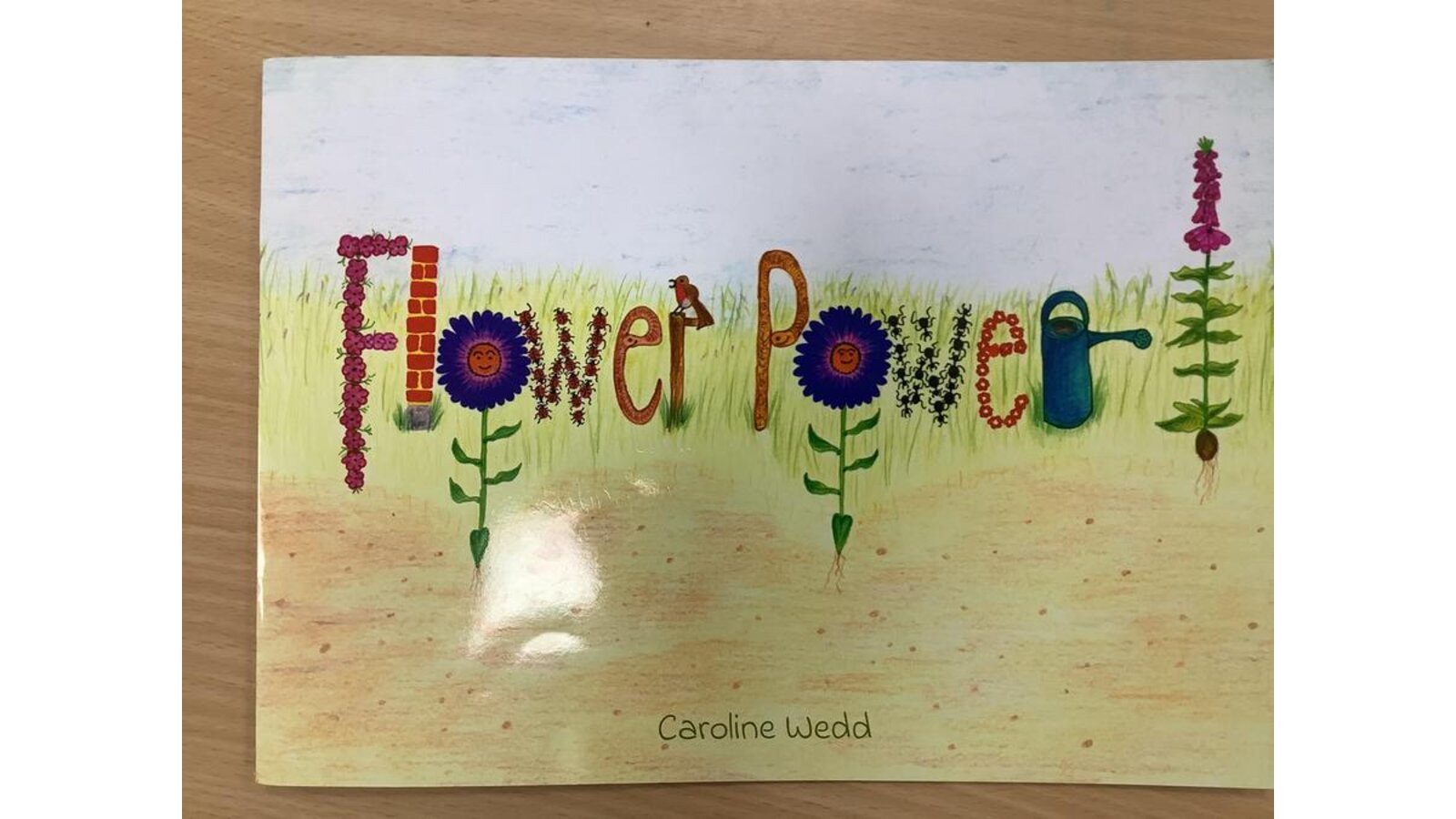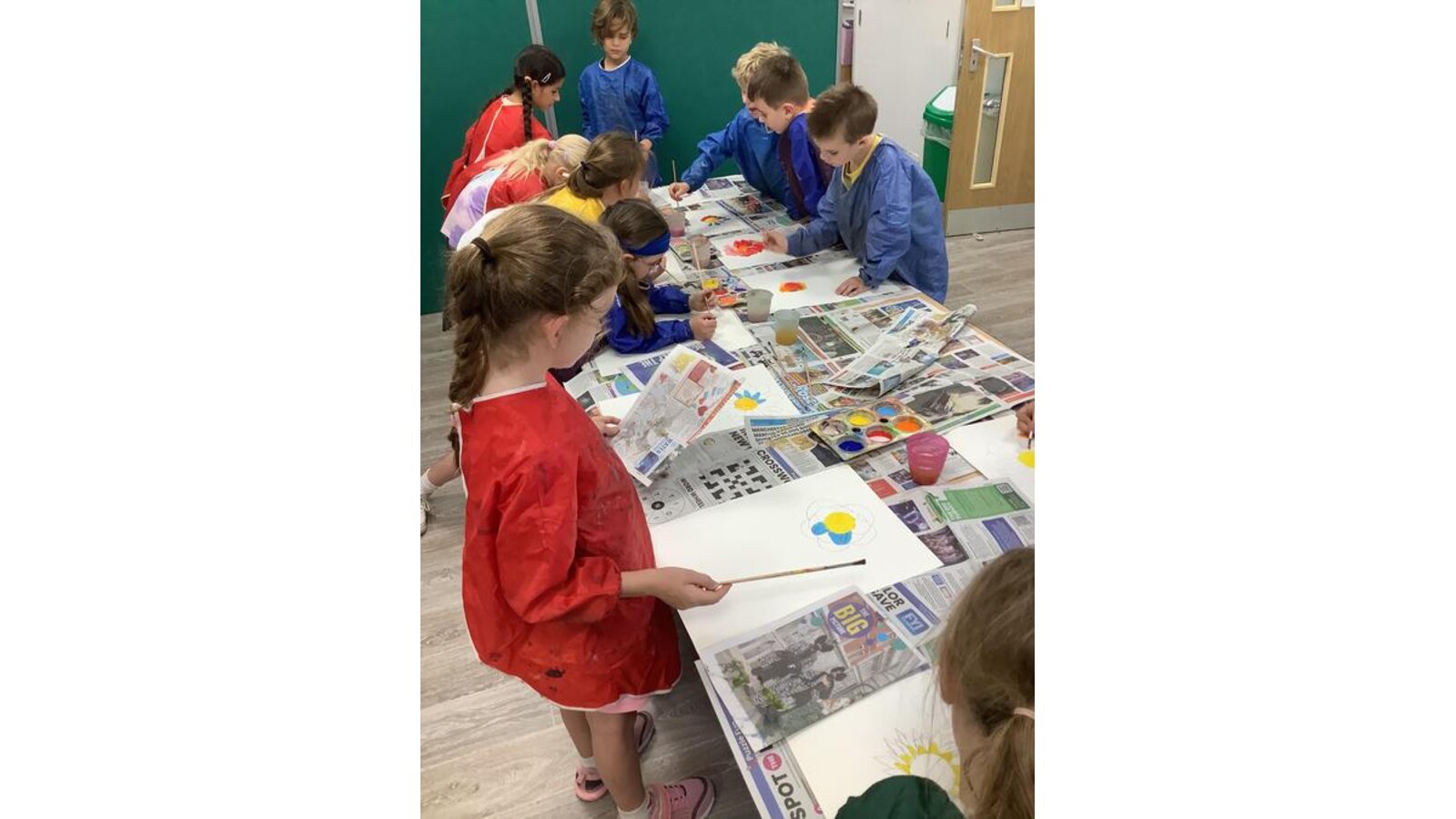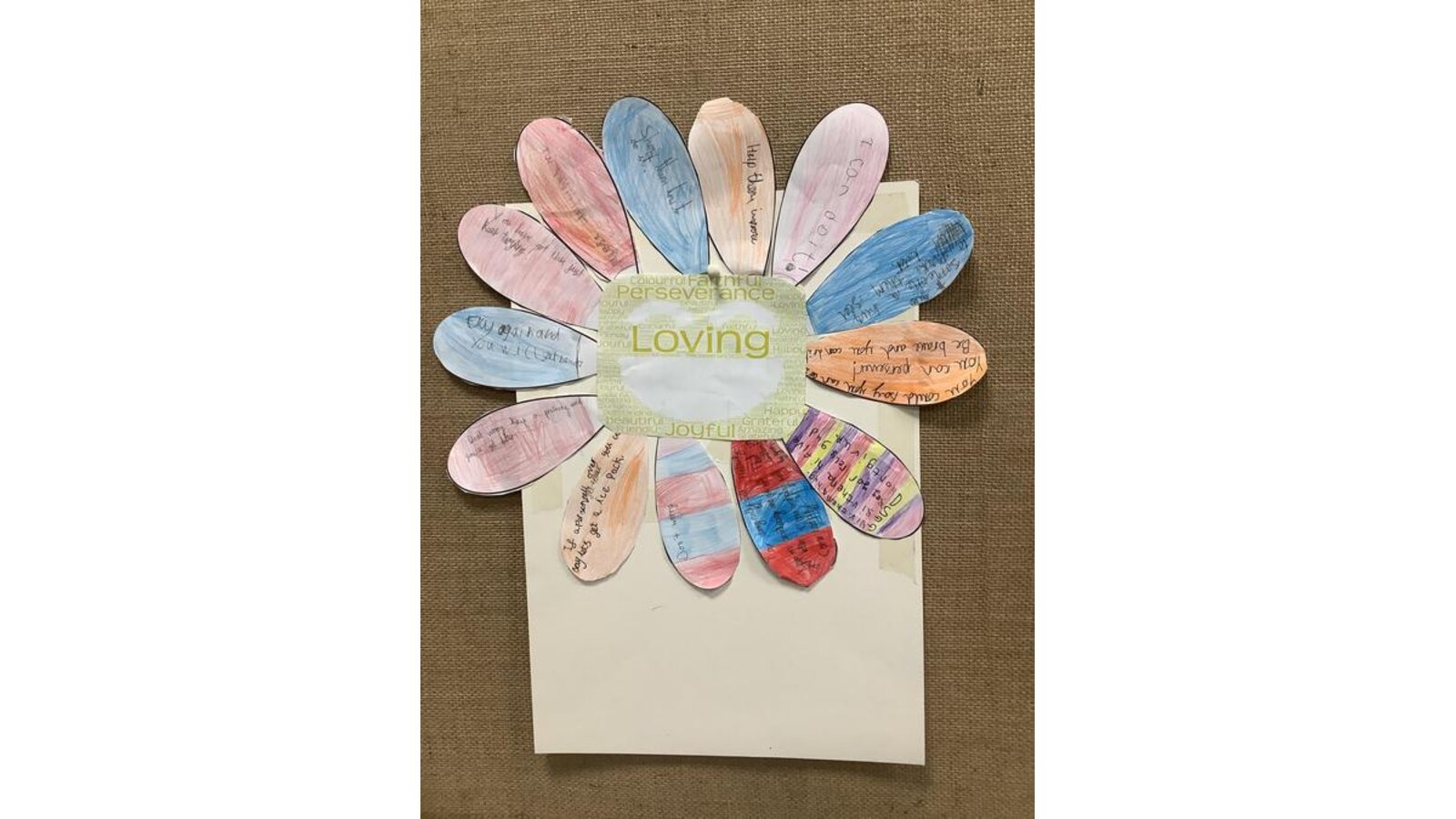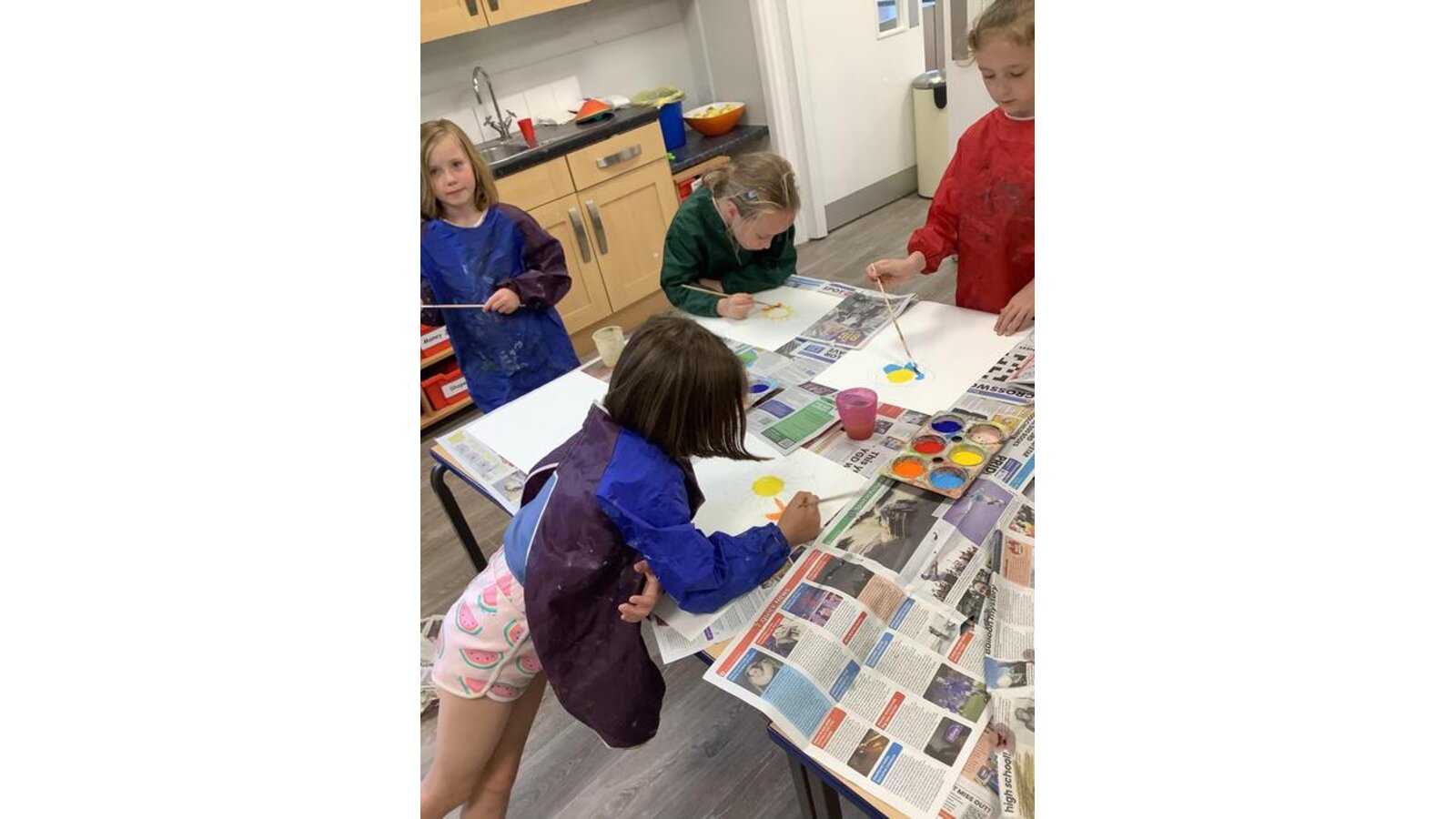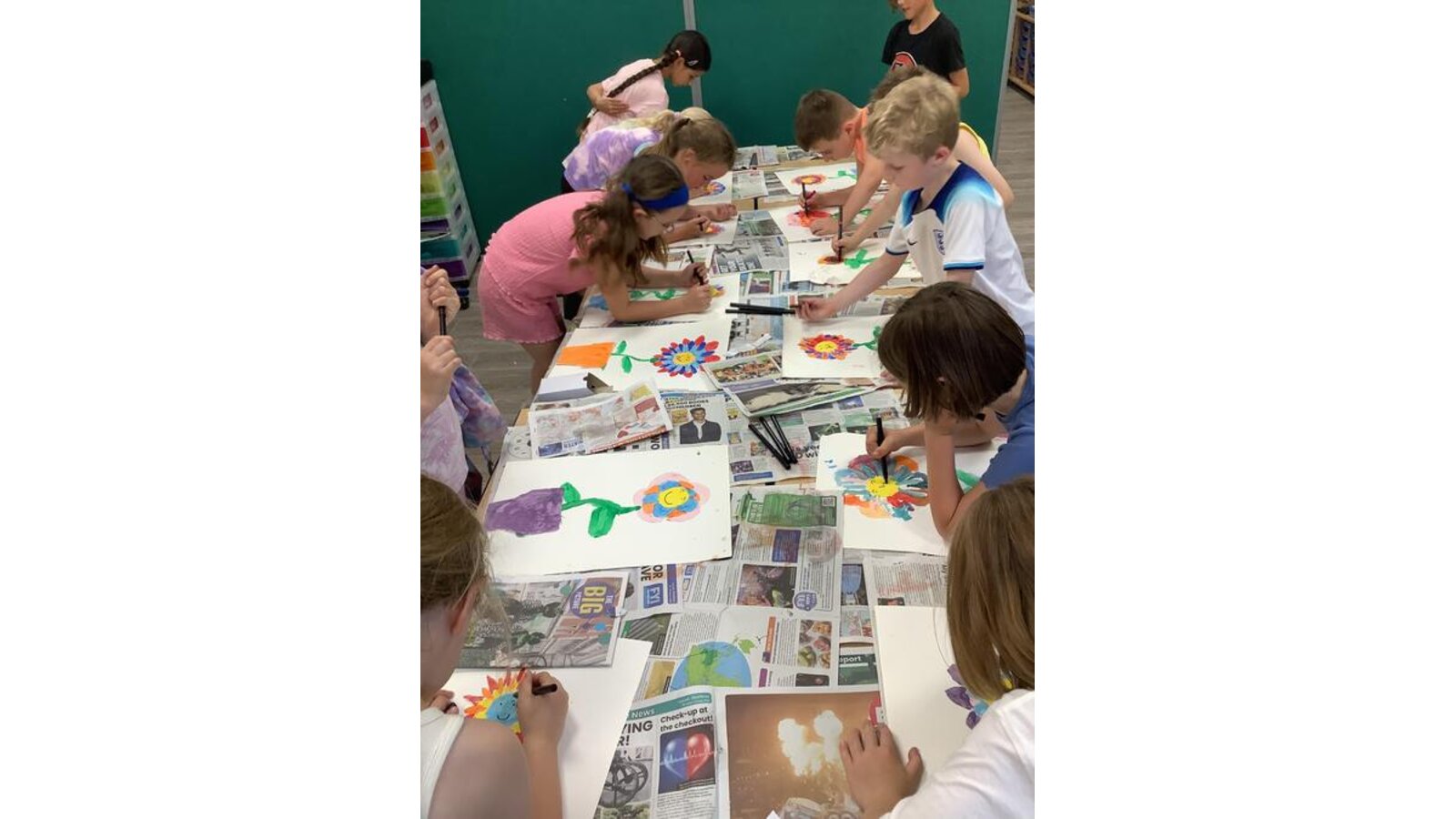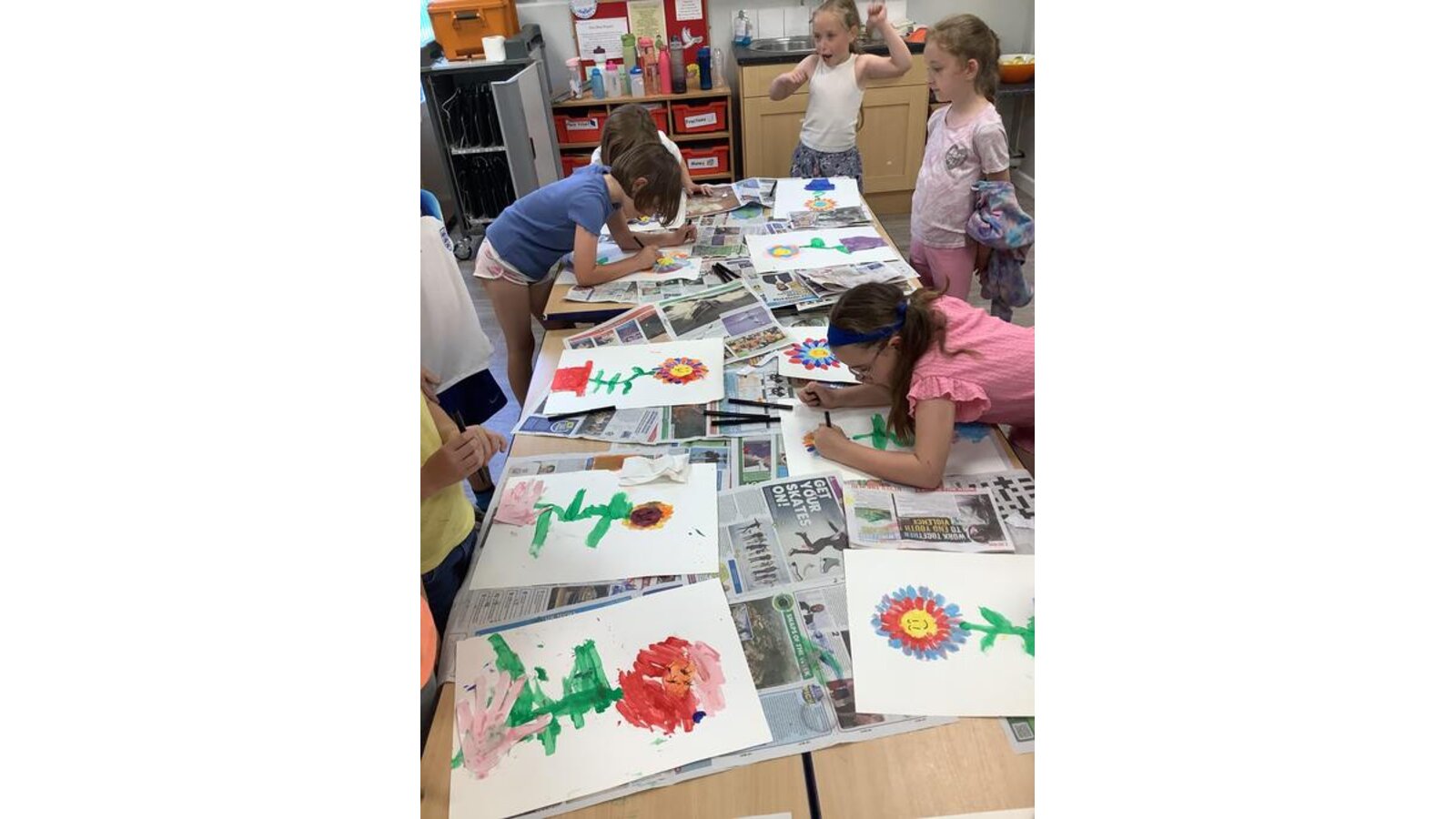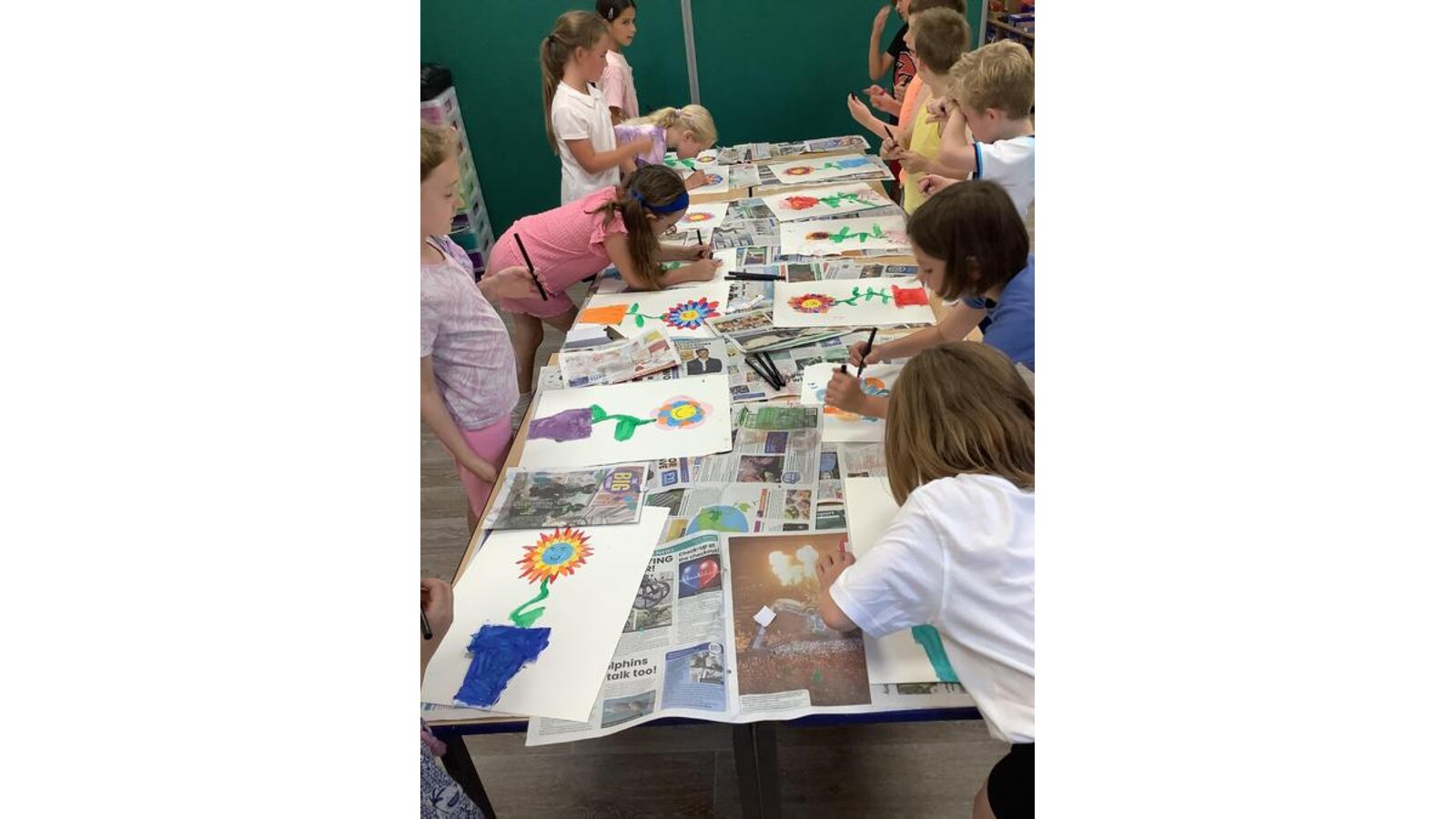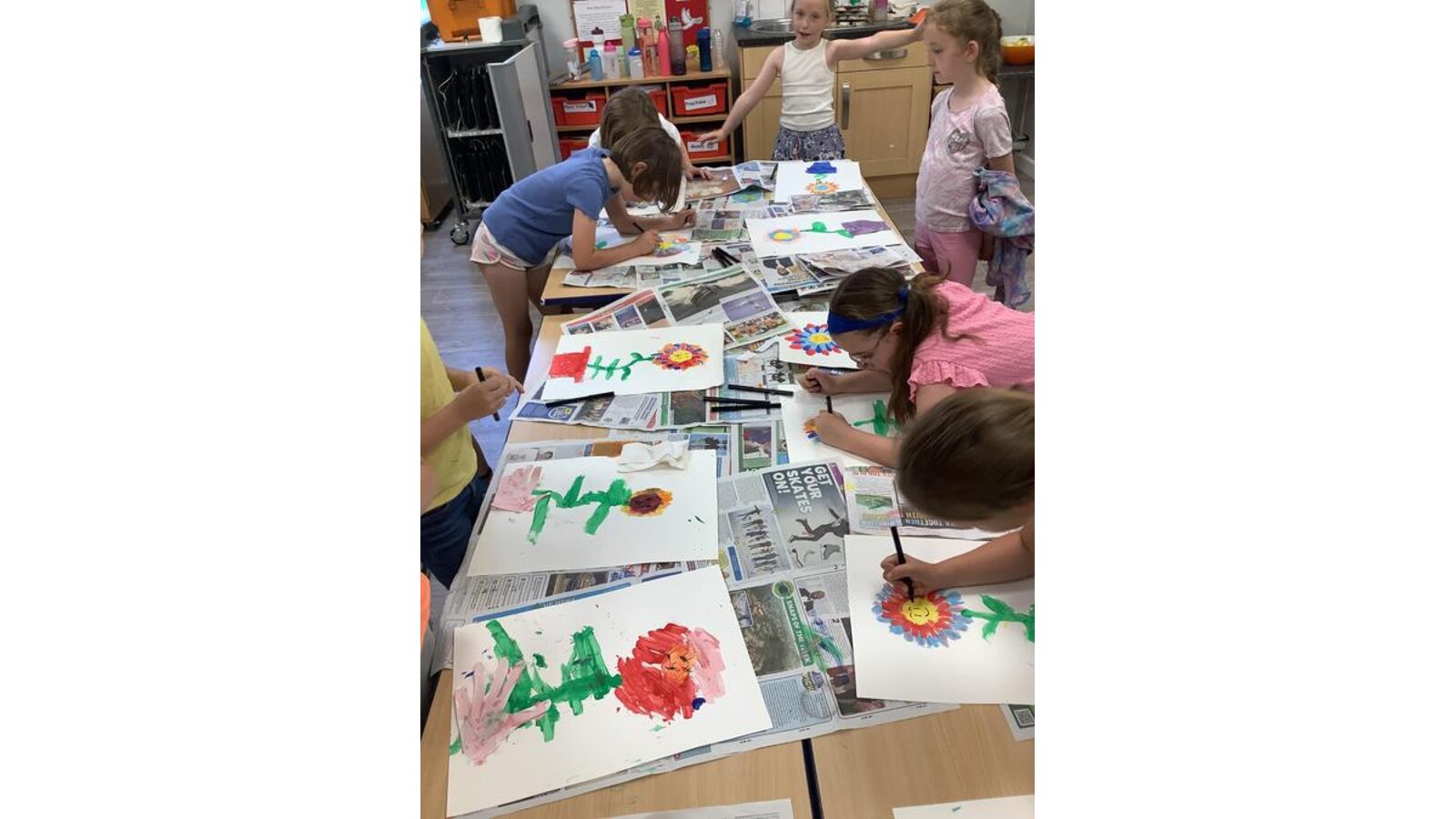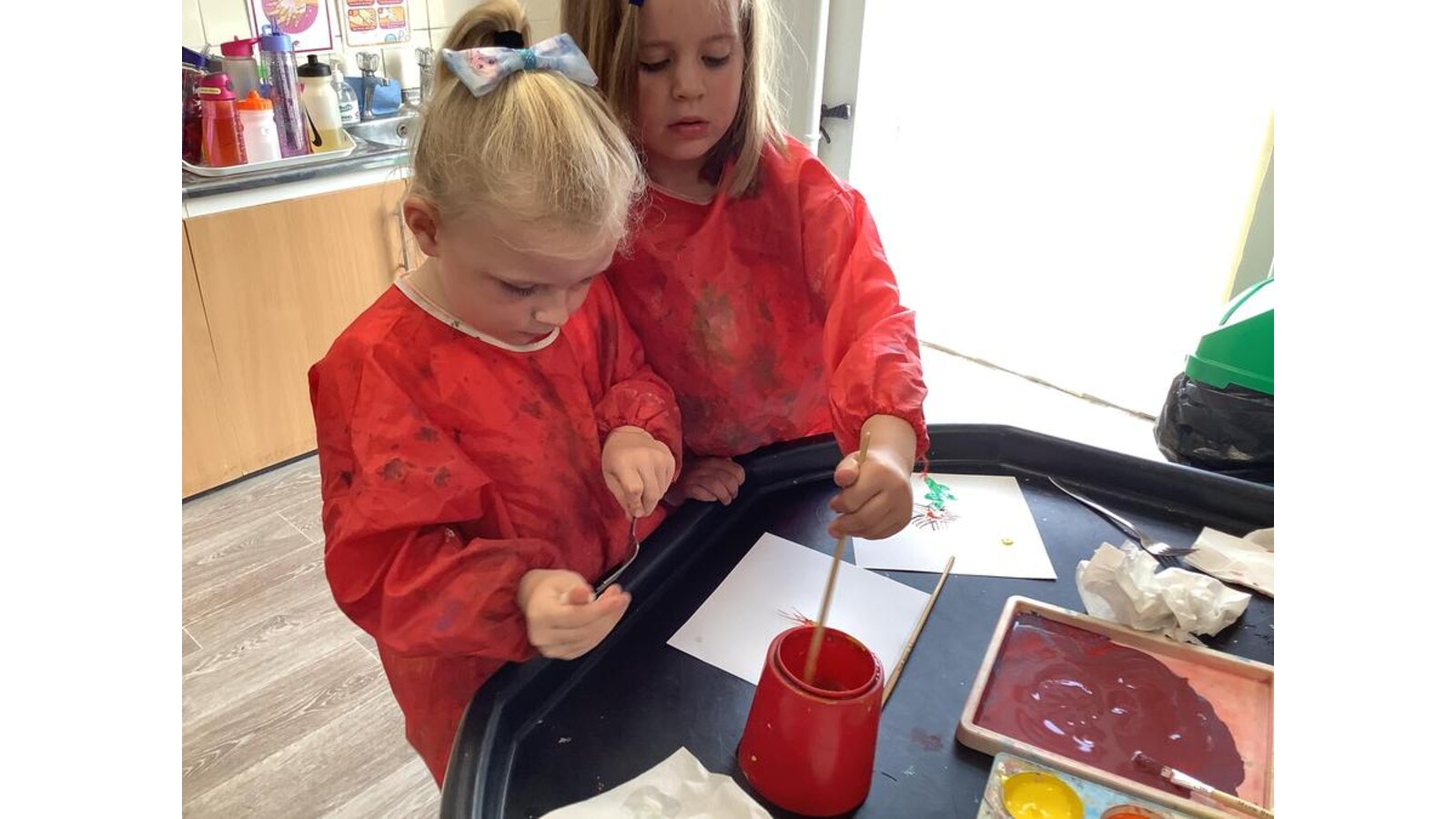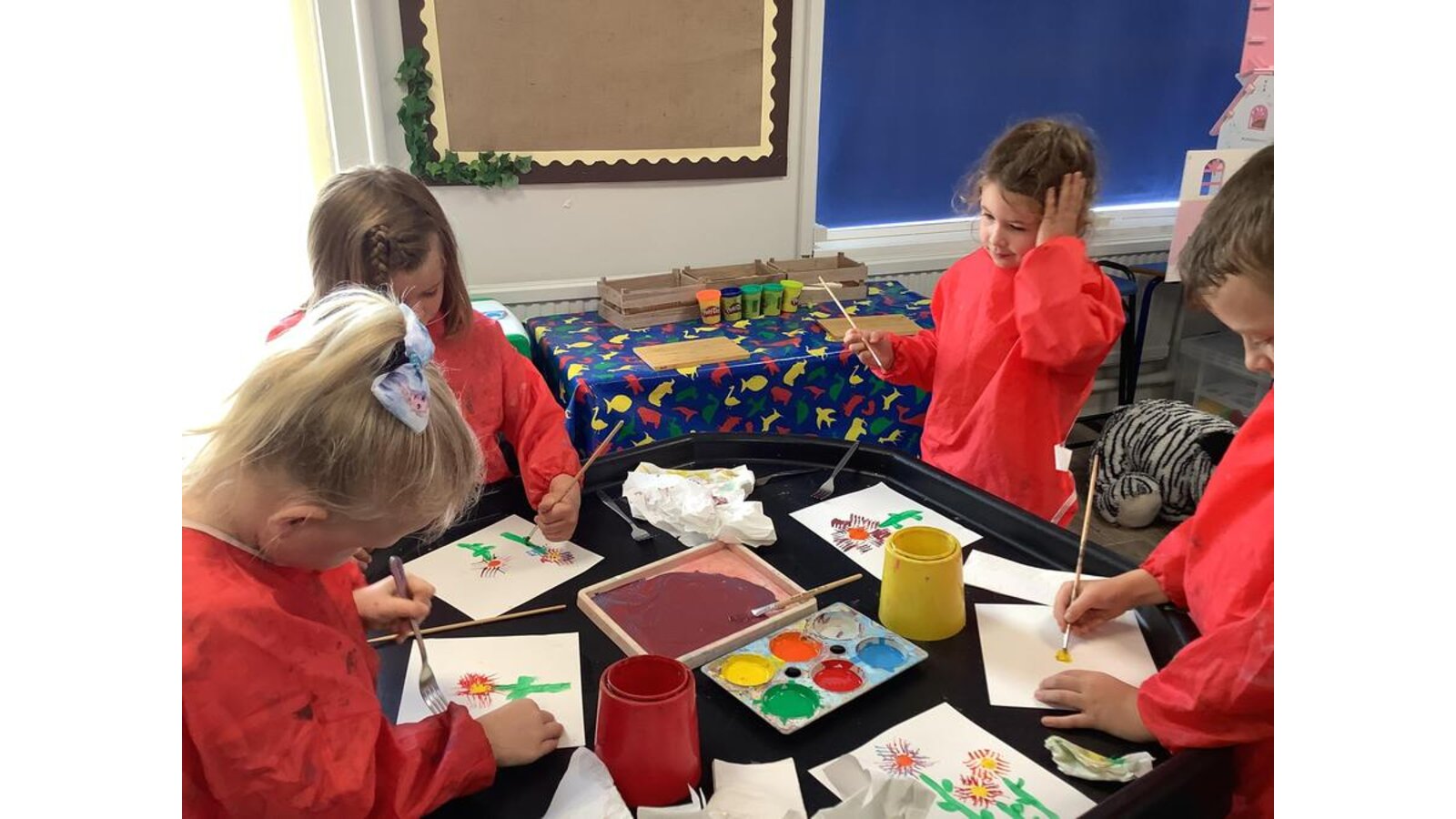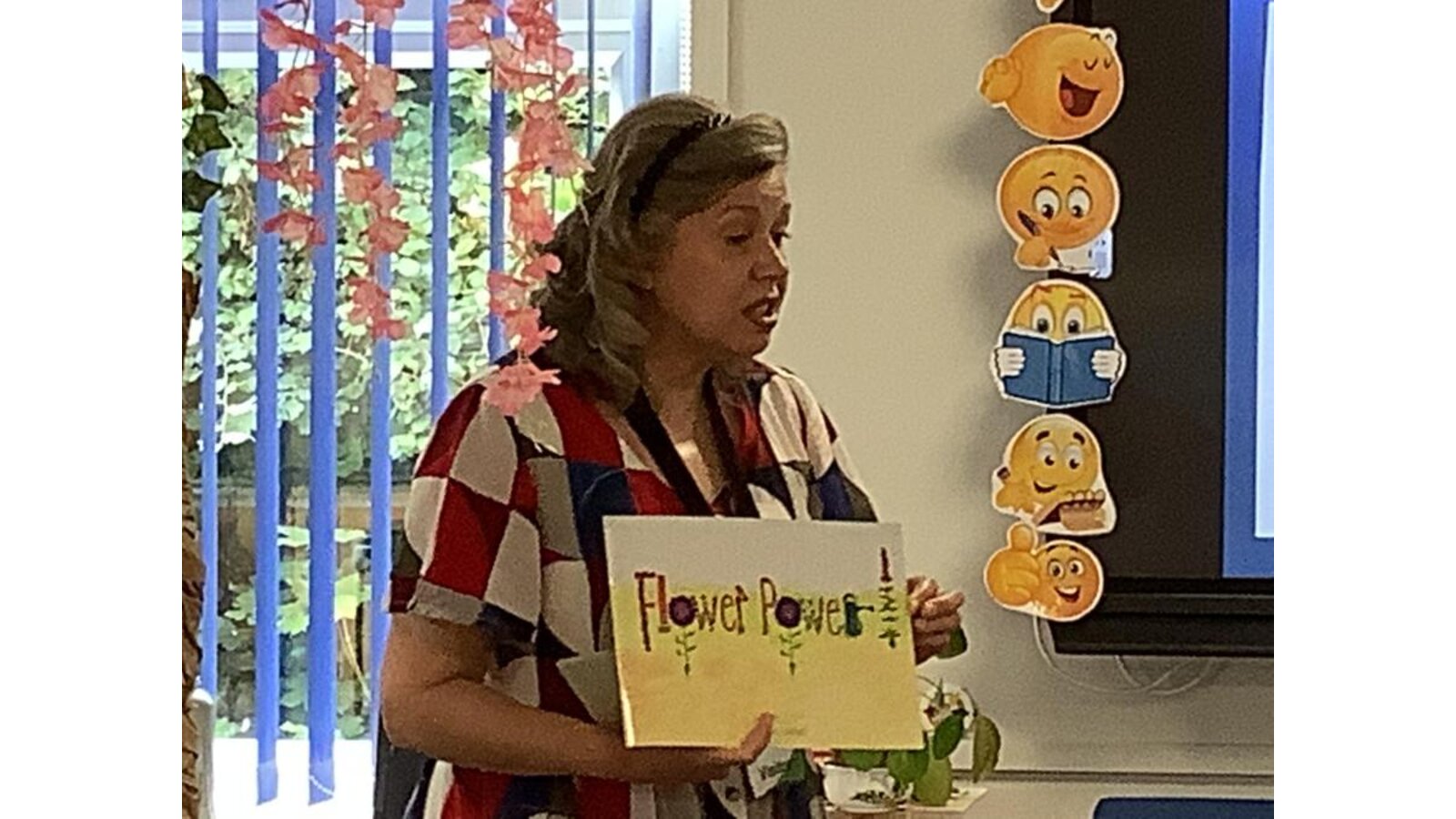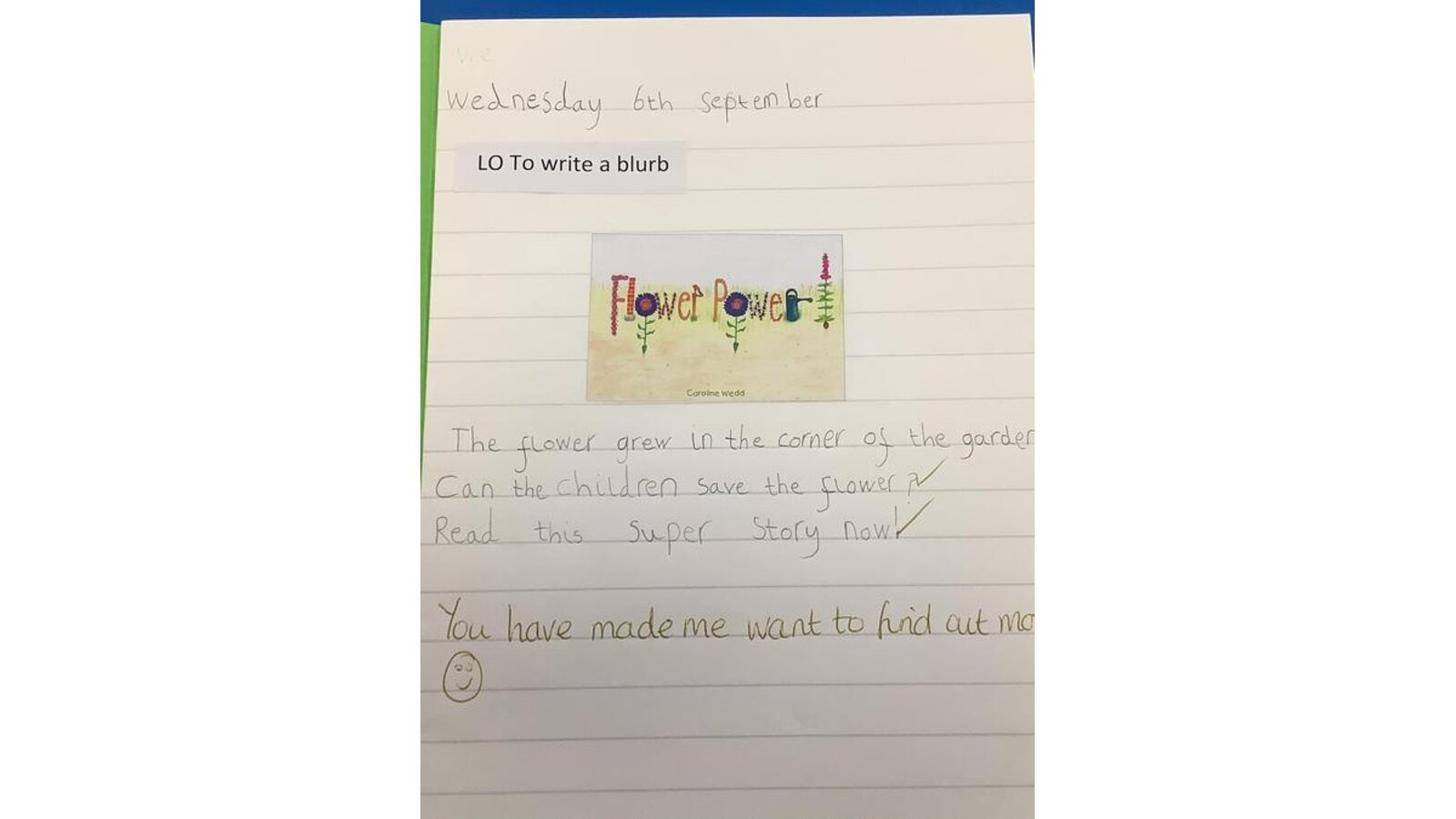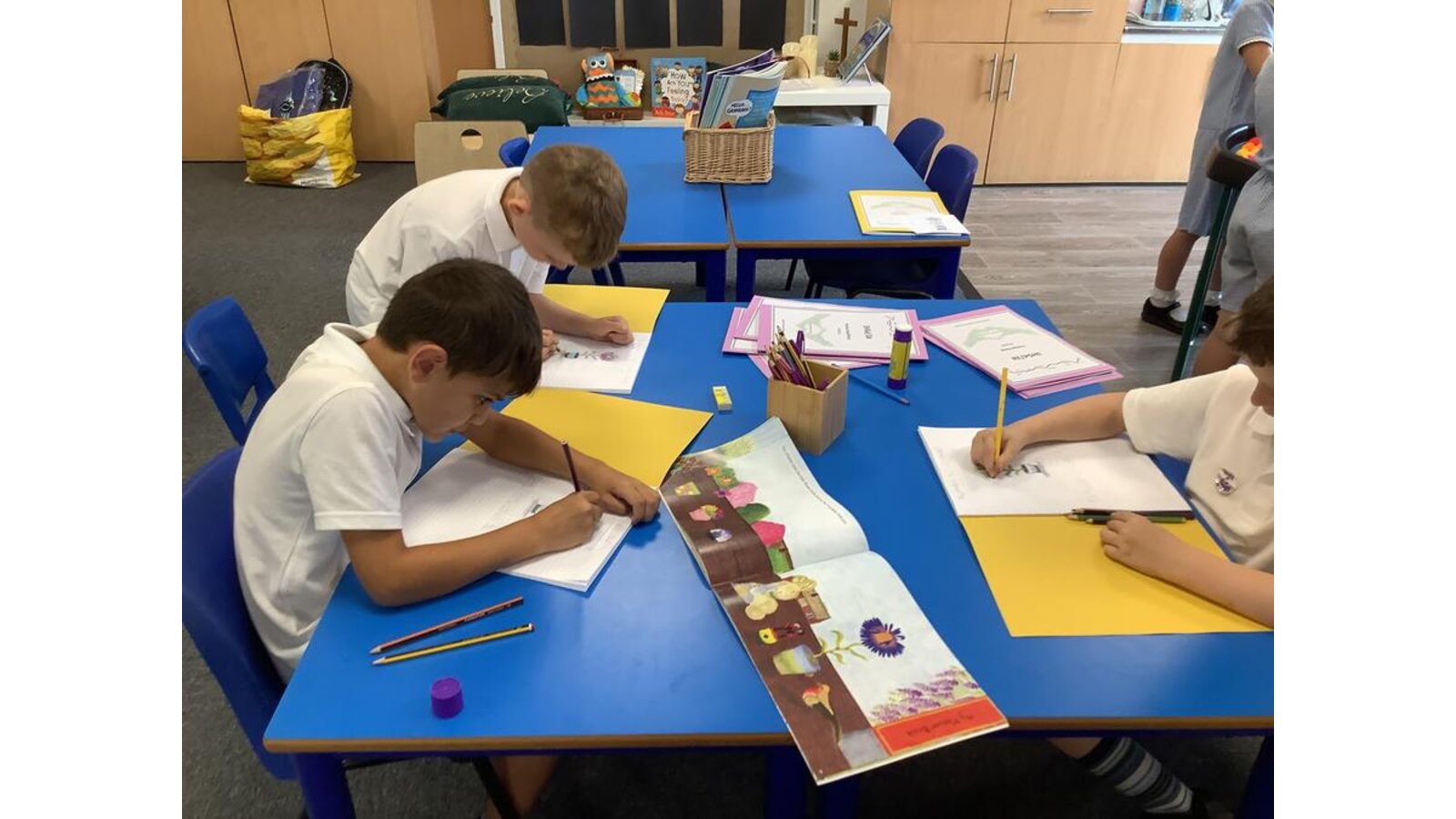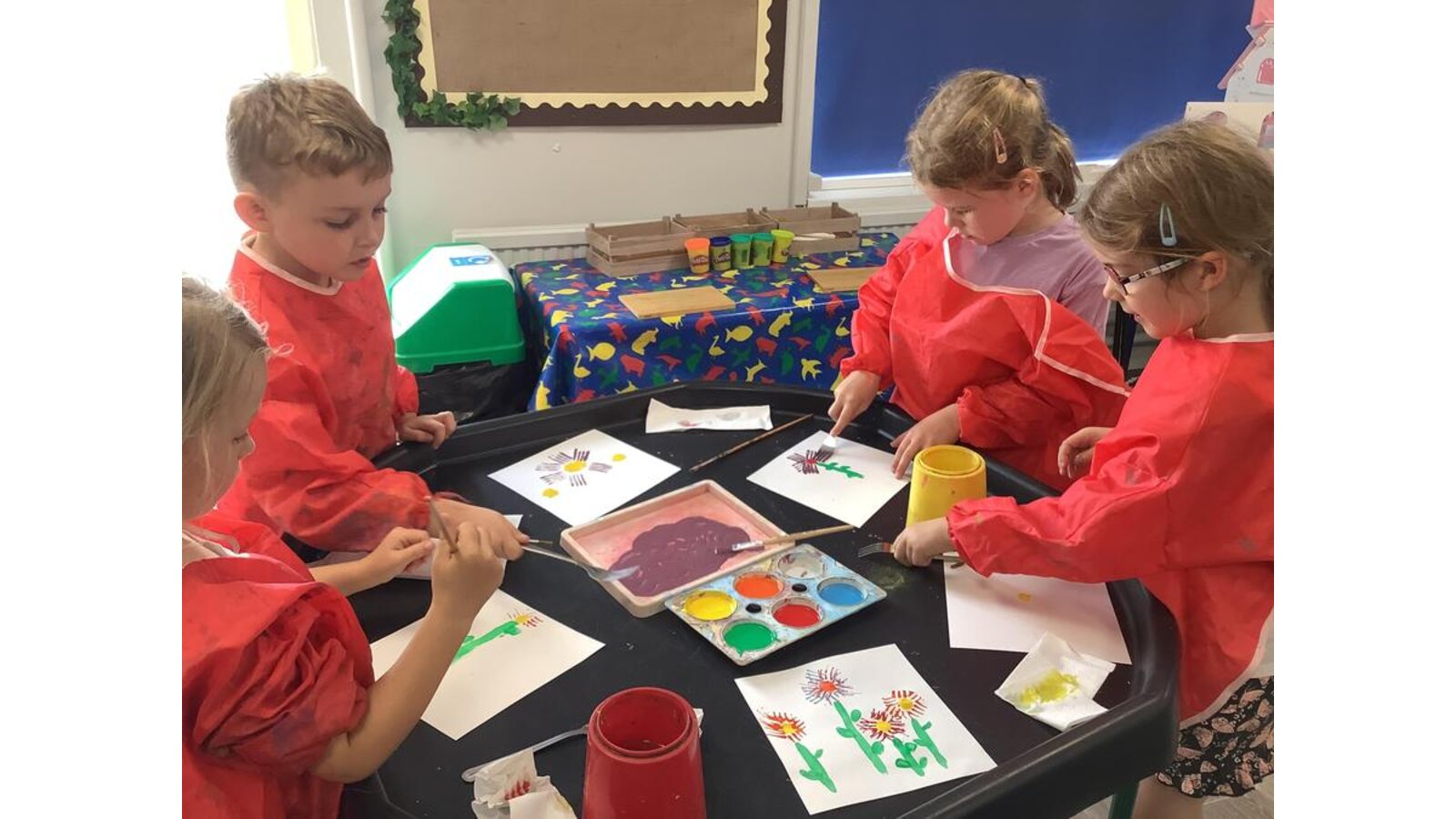Because of our English Curriculum, our children Grow and Flourish as linguists and communicators through-
Wisdom- of extensive and rich vocabulary, extensive knowledge of having read a variety high quality texts and draw upon their knowledge and research to produce writing for different purposes and audiences.
Love- of writing and an appreciation of its educational, cultural and entertainment values. They have a love of reading for pleasure.
Perseverance- through well-organised and structured writing which is well-presented and punctuated, spelled correctly and neat. They have the motivation to read for both study and pleasure.
Wisdom-Love-Perseverance
Here at Mary Howard, we develop and engender a Love of Reading, Writing and Communicating.
We recognise the essential nature of English both as a subject in its own right and as the key to learning in all areas of the curriculum. Language development is one of the most important aspects of the curriculum as it is the basis of communication and learning. Speaking and listening, reading, writing, grammar, punctuation and spelling are all areas we aim to develop to very high standards by providing a rich and stimulating environment with varied resources and use of a range of media: books, pictures, games, discussions, websites, stories, poetry and drama.
Great emphasis is laid upon the teaching of reading and a variety of teaching methods and approaches are used to encourage and motivate children’s learning, developing skills and fostering a love of books from their earliest days at school. In our literate classrooms, children become confident in their growing ability to handle books, texts and literature of all kinds.
The children’s reading ability is assessed in a variety of ways from on-going formative teacher assessment to standardised tests for children in Year 2 to Year 6. This helps us to plan the next stage in their reading journey and to ensure that the children leave us as fluent readers by the end of Year 6. Children are given a Home/School reading diary and an individual reading book to read at home with parents as part of our Homework policy. We encourage our children to read at least five times per week at home. We also encourage a love of reading by organising book related theme days and other activities and initiatives that reward children for reading.
Children are encouraged to speak clearly, thoughtfully and confidently. Discussion of work, different issues and current events with the teacher and with other children enables each child to assemble their thoughts, to express themselves with clarity and to develop logical debating skills. They are also encouraged to speak publicly in a variety of different situations such as school productions and Church services.
The children are given many opportunities to develop language skills through a multiplicity of writing experiences. Common words and spelling in word families are taught, revised and tested regularly. Weekly “spellings” will form part of your child’s homework from Year 1 upwards.
Handwriting and spelling are closely linked and it is important that handwriting is properly taught with letters formed correctly. Our handwriting policy is to encourage all children from entry to develop neat, legible handwriting.
Reading Spine
We understand the importance of exposing our children to a wide range of quality literature. Together, we have created a Reading Spine which is progressive, challenging and immersive. We believe that basing learning around a quality text, linked to a theme or topic and writing for a specific purpose and audience, provides the best learning experiences. Using the 'Reading as a Writer' and 'Writing as a Reader' mantra improves outcomes and enjoyment for all pupils.
All of the texts in our Reading Spine have been carefully selected using recommendations from Doug Lemov's 'Reading Reconsidered', Pie Corbett's Books Spines and Books for Topics Recommended Reads, along with some of our own favourites, ensures that pupils leave our schools with a wide reading repertoire, and maximum readiness for the next stage of their learning journey.
Our Class Reading Spines
